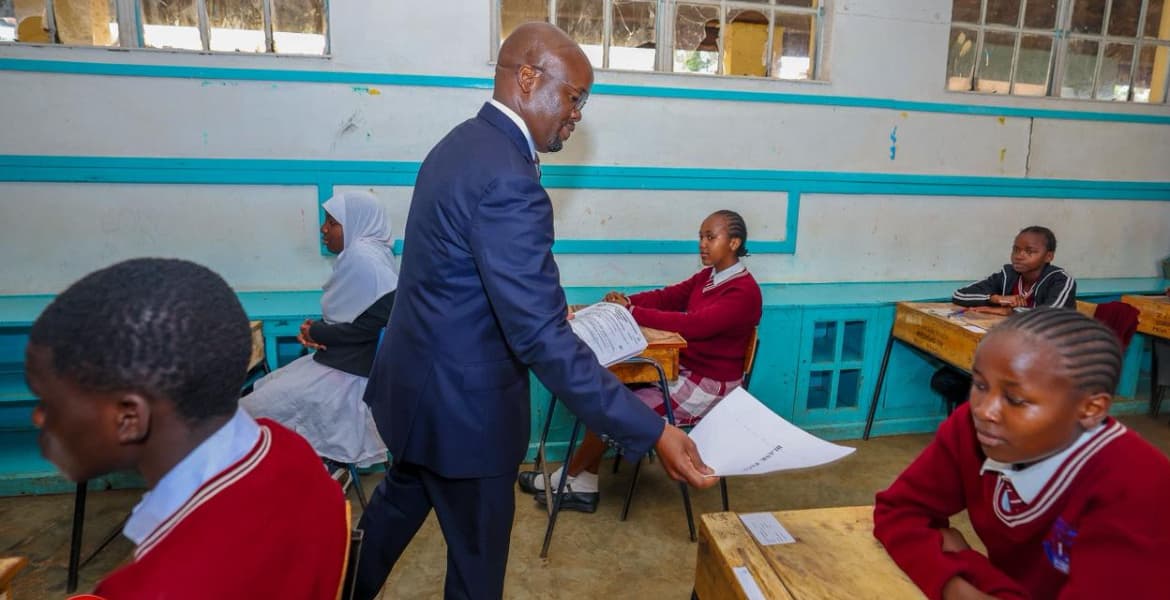We're loading the full news article for you. This includes the article content, images, author information, and related articles.
A multi-agency security team has launched a round-the-clock surveillance operation to track and arrest individuals selling fake national examination papers online, aiming to protect the integrity of the ongoing KCSE exams.

The Kenyan government has established a 24-hour National Command Centre to intensify its crackdown on the sale of fraudulent Kenya Certificate of Secondary Education (KCSE) examination papers and curb rising instances of online scams targeting parents and students. The multi-agency hub, located at the Ministry of Interior and National Administration headquarters, is now fully operational, according to a statement released on Wednesday, 29 October 2025, by Internal Security Principal Secretary Dr. Raymond Omollo.
The command centre brings together personnel from the Ministry of Education, the Ministry of ICT, the Kenya National Examinations Council (KNEC), and national security agencies. Its primary mandate is to conduct real-time surveillance of social media platforms and other digital spaces to identify, track, and apprehend individuals and syndicates involved in peddling fake exam materials. "The centre allows us to access and assess information in real time, and where there are gaps, we immediately intervene," Dr. Omollo stated on Wednesday.
The initiative comes as the 2025 KCSE examinations are underway, with the government keen to prevent a recurrence of past challenges related to early exposure of exam papers. Dr. Omollo confirmed that authorities have already identified several fraudsters posing as examination insiders to defraud unsuspecting parents and teachers with promises of leaked papers in exchange for money. "Our officers are monitoring various social media platforms to identify and neutralize individuals seeking to defraud parents, teachers, or candidates with fake exam leaks," he added.
This crackdown is part of a broader strategy by KNEC to safeguard the credibility of national examinations. Recent measures include the introduction of personalized question papers bearing each candidate's name and index number to prevent impersonation, and piloting digital smart padlocks on 250 examination containers for real-time monitoring. Education Cabinet Secretary Julius Ogamba has issued stern warnings that any individuals, including teachers and parents, found engaging in exam malpractice will face swift arrest and prosecution.
The establishment of the command centre follows several recent arrests connected to online examination fraud. In one notable case, a Meru University student, Chrispinus Nandafu, was arrested and charged in October 2025 with operating an elaborate online syndicate that allegedly sold fake KCSE papers. The suspect is accused of running WhatsApp and Telegram groups with hundreds of members, using multiple SIM cards and aliases to sell the fraudulent materials. According to the Directorate of Criminal Investigations (DCI), detectives recovered dozens of SIM cards, mobile phones, and laptops during the arrest.
Data from KNEC reveals the growing challenge posed by online platforms. In August 2025, the council reported 51 Telegram and WhatsApp channels for exam-related fraud to the Communications Authority of Kenya, with 36 cases currently under investigation. These syndicates not only undermine the integrity of the education system but also inflict significant emotional and psychological distress on students who are duped by false papers. The new command centre aims to provide a coordinated and rapid response mechanism to dismantle these networks and ensure a fair examination process for all candidates.
Keep the conversation in one place—threads here stay linked to the story and in the forums.
Sign in to start a discussion
Start a conversation about this story and keep it linked here.
Other hot threads
E-sports and Gaming Community in Kenya
Active 9 months ago
The Role of Technology in Modern Agriculture (AgriTech)
Active 9 months ago
Popular Recreational Activities Across Counties
Active 9 months ago
Investing in Youth Sports Development Programs
Active 9 months ago